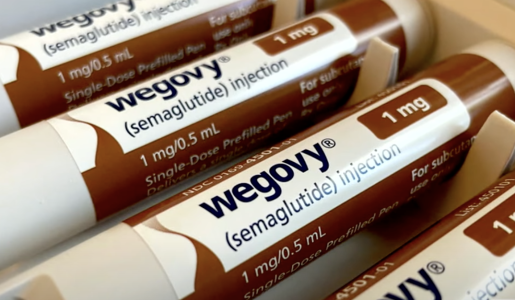Is your Medicare coverage changing? Unveiling the latest update
- Replies 3
Navigating the ever-evolving landscape of Medicare can be as complex as a grandmaster's chess game.
For those who have crossed the 60-year milestone, understanding these changes is not just a matter of staying informed—it's about ensuring your health and financial well-being.
Recently, the Trump Administration made headlines with an update that could impact many. Let's delve into the details and decipher what this means for your Medicare coverage.
The Centers for Medicare and Medicaid Services (CMS) delivered a significant announcement last Friday.
Medications like Zepbound and Wegovy, which have been making waves for their effectiveness in treating obesity, will not be covered under Medicare's Part D prescription drug program. This decision affects a broad swath of individuals, primarily those aged 65 and older.
The timing of this announcement is particularly noteworthy. In the wake of President Donald Trump's re-election, it was the outgoing President Joe Biden who proposed a rule to expand coverage for these drugs.
The expectation was that this rule would not be finalized before Trump's return to the Oval Office in January.

Medicare, the federal health insurance program, provides coverage for a myriad of health conditions for those over 65 or with certain disabilities.
It currently includes GLP-1 medications like Eli Lilly's Mounjaro and Novo Nordisk's Ozempic when prescribed for diabetes. However, the versions of these drugs approved for obesity treatment are not covered.
The popularity of injectable weight-loss treatments has skyrocketed, thanks to the transformative results they've delivered for some patients.
Yet, the reluctance of many insurers and payers to cover these treatments stems from their hefty price tags—often reaching into the hundreds of dollars per month—and the vast potential market of users.
The Biden proposal sought to broaden the coverage net through state and federally funded Medicaid programs for low-income individuals, with an estimated cost of up to $35 billion over the next decade.
Proponents of the plan argue that this investment could pay dividends by preventing expensive health complications associated with obesity.

Over a dozen state Medicaid programs currently include coverage for the medications.
US Health Secretary Robert F. Kennedy Jr. has emphasized that the country should prioritize encouraging nutritious diets to tackle obesity, rather than depending on pharmaceutical solutions.
Also read: Budget dilemma: Proposed cuts could hit Medicare and Medicaid, affect millions
Pharmaceutical giants like Lilly have expressed their commitment to continue working with the Trump Administration and Congress to secure coverage for those living with obesity.
Novo Nordisk also chimed in, saying, that the “...announcement was limited," but the company hopes the Trump Administration would soon finalize the definition of obesity. "It is essential that CMS regulations are aligned with current medical science – and that means recognizing obesity as a serious chronic disease."

Analysts like Courtney Breen from Bernstein have weighed in, suggesting that the proposal's withdrawal was not unexpected, especially given the ongoing pharmaceutical tariff negotiations.
The sentiment is that the administration is unlikely to extend benefits without securing concessions elsewhere.
In earlier news: Medicare bills skyrocketing–uncover the shocking prices of Ozempic and Trulicity and how it affects you!
Source: ABC News / Youtube.
The CMS, under the leadership of Dr. Mehmet Oz, has also decided to shelve two other proposals.
One aimed to encourage Medicare providers to assess their healthcare utilization policies with a focus on health equity.
The other sought to implement safeguards for the use of artificial intelligence in healthcare, amid concerns about potential misuse in patient care decisions.
Read next: Dr. Oz confirmed to lead Medicare and Medicaid programs—here’s what that could mean for your healthcare

Have you or a loved one been affected by these recent Medicare updates? Do you have insights or concerns about the future of healthcare coverage for your age group? We invite you to share your stories and questions in the comments below!
For those who have crossed the 60-year milestone, understanding these changes is not just a matter of staying informed—it's about ensuring your health and financial well-being.
Recently, the Trump Administration made headlines with an update that could impact many. Let's delve into the details and decipher what this means for your Medicare coverage.
The Centers for Medicare and Medicaid Services (CMS) delivered a significant announcement last Friday.
Medications like Zepbound and Wegovy, which have been making waves for their effectiveness in treating obesity, will not be covered under Medicare's Part D prescription drug program. This decision affects a broad swath of individuals, primarily those aged 65 and older.
The timing of this announcement is particularly noteworthy. In the wake of President Donald Trump's re-election, it was the outgoing President Joe Biden who proposed a rule to expand coverage for these drugs.
The expectation was that this rule would not be finalized before Trump's return to the Oval Office in January.

The CMS announced it will not cover medications like Zepbound and Wegovy for obesity treatment under Medicare's Part D. Image source: ABC News / Youtube.
Medicare, the federal health insurance program, provides coverage for a myriad of health conditions for those over 65 or with certain disabilities.
It currently includes GLP-1 medications like Eli Lilly's Mounjaro and Novo Nordisk's Ozempic when prescribed for diabetes. However, the versions of these drugs approved for obesity treatment are not covered.
The popularity of injectable weight-loss treatments has skyrocketed, thanks to the transformative results they've delivered for some patients.
Yet, the reluctance of many insurers and payers to cover these treatments stems from their hefty price tags—often reaching into the hundreds of dollars per month—and the vast potential market of users.
The Biden proposal sought to broaden the coverage net through state and federally funded Medicaid programs for low-income individuals, with an estimated cost of up to $35 billion over the next decade.
Proponents of the plan argue that this investment could pay dividends by preventing expensive health complications associated with obesity.

President Biden's proposed rule to expand coverage for obesity treatments through Medicaid programs was not finalized before Trump's return to office. Image source: ABC News / Youtube.
Over a dozen state Medicaid programs currently include coverage for the medications.
US Health Secretary Robert F. Kennedy Jr. has emphasized that the country should prioritize encouraging nutritious diets to tackle obesity, rather than depending on pharmaceutical solutions.
Also read: Budget dilemma: Proposed cuts could hit Medicare and Medicaid, affect millions
Pharmaceutical giants like Lilly have expressed their commitment to continue working with the Trump Administration and Congress to secure coverage for those living with obesity.
Novo Nordisk also chimed in, saying, that the “...announcement was limited," but the company hopes the Trump Administration would soon finalize the definition of obesity. "It is essential that CMS regulations are aligned with current medical science – and that means recognizing obesity as a serious chronic disease."

CMS, currently led by Dr. Mehmet Oz, decided not to proceed with proposals related to healthcare equity and artificial intelligence tool regulations. Image source: CNN News / Youtube.
Analysts like Courtney Breen from Bernstein have weighed in, suggesting that the proposal's withdrawal was not unexpected, especially given the ongoing pharmaceutical tariff negotiations.
The sentiment is that the administration is unlikely to extend benefits without securing concessions elsewhere.
In earlier news: Medicare bills skyrocketing–uncover the shocking prices of Ozempic and Trulicity and how it affects you!
Source: ABC News / Youtube.
The CMS, under the leadership of Dr. Mehmet Oz, has also decided to shelve two other proposals.
One aimed to encourage Medicare providers to assess their healthcare utilization policies with a focus on health equity.
The other sought to implement safeguards for the use of artificial intelligence in healthcare, amid concerns about potential misuse in patient care decisions.
Read next: Dr. Oz confirmed to lead Medicare and Medicaid programs—here’s what that could mean for your healthcare
Key Takeaways
- The CMS announced it will not cover medications like Zepbound and Wegovy for obesity treatment under Medicare's Part D.
- President Biden's proposed rule to expand coverage for obesity treatments through Medicaid programs was not finalized before Trump's return to office.
- More than a dozen state Medicaid programs currently cover weight loss drugs, but there is reluctance among insurers and payers due to high costs.
- CMS, currently led by Dr. Mehmet Oz, decided not to proceed with proposals related to healthcare equity and artificial intelligence tool regulations.
Have you or a loved one been affected by these recent Medicare updates? Do you have insights or concerns about the future of healthcare coverage for your age group? We invite you to share your stories and questions in the comments below!






